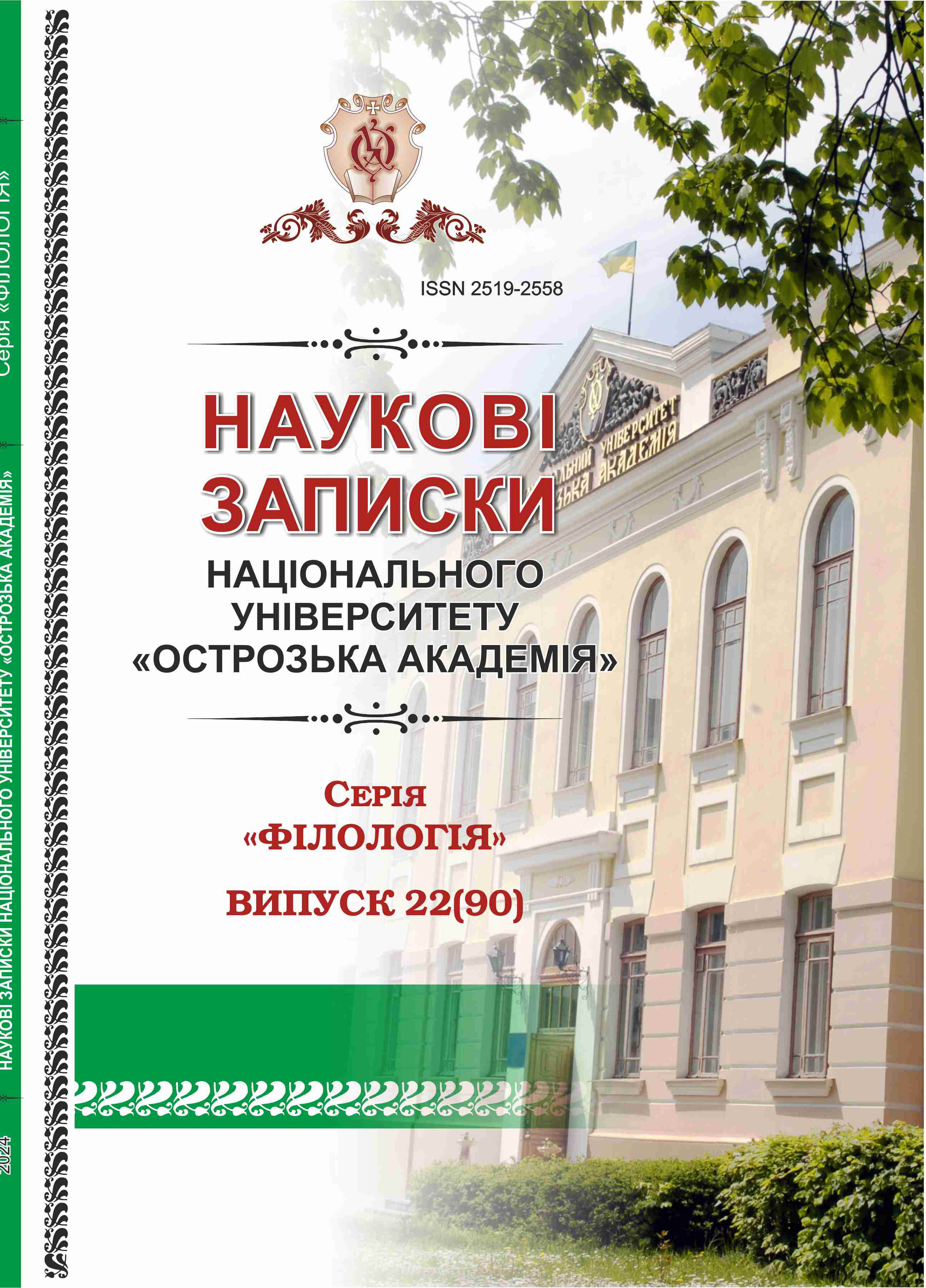THE EVALUATIVE POTENTIAL OF STATIVES IN UKRAINIAN LANGUAGE
Keywords:
linguoaxiology, grammar of evaluation, grammar of morphology, category of evaluation, evaluative meaning, category of stateAbstract
The reflection of environmental events occurs in language through the prism of the category of evaluation, which is traditionally interpreted as a result of linguistic expression of logical-philosophical evaluative judgments. In contemporary linguistics, linguoaxiology is actively developing, with its component, the grammar of evaluation, being presented as an independent scientific direction that explores the morphology and syntax of evaluation. This research is primarily focused on the morphology of grammar. Among the parts of speech containing a powerful evaluative potential, the Ukrainian category of state or predicate stands out. Despite numerous studies on the issues of defining the status and peculiarities of the category of state functioning, discussions continue regarding the interpretation of these word categories and their linguistic capabilities.
The aim of the research is to characterize the status of the category of state in the grammar of the Ukrainian language and to determine its ability to perform an evaluative function in Ukrainian speech.
The scientific study utilizes the following general scientific methods: induction and deduction to move from general statements to conclusions regarding the category of state as a phenomenon in the grammar of the Ukrainian language and vice versa, to generalize search results; analysis and synthesis for identifying and distinguishing types of described units and presenting them as a system; abstraction for isolating the category of state features, classification (taxonomy) for delineating the system of semantic meanings of the category of state and its grammatical features, historiographical for presenting various perspectives in the history of Ukrainian grammatical studies regarding the category of state status. The material in this article is presented using a descriptive method.
We align with the views of linguists regarding the category of state status as an independent part of speech and believe that this class of words has significant potential for modeling evaluative meanings. The words representing this part of speech are homonymous with adverbs and nouns, which is functionally determined: they are capable to serve the syntactic role of the predicative, the main element (predicate). Additionally, as mentioned earlier, they can combine with statives or semi-statives, be used with or without the infinitive. It’s important to note that the category of state is understood impersonally. Besides expressing a state, the category of state simultaneously verbalizes an evaluation of the corresponding state, thus allowing for the delineation of a system of the category of state meanings.
This marks the first analysis in Ukrainian linguistics of the evaluative potential of the category of state and the classification of evaluative meanings corresponding to the state it expresses.
We note the ambiguous understanding of the category of state in Ukrainian linguistics, the presence of several conflicting and debatable approaches to its interpretation, and the delineation of its status. The category of state is a powerful marker of the evaluative category since it can verbalize a range of evaluative meanings, including emotional-evaluative ones, which is important for developing the morphology of evaluation. Studying grammar from a lingouaxiological perspective allows us to see the dynamics of the grammatical system, provides a new view on traditional issues, and consequently contributes to the development of grammar as a science.

